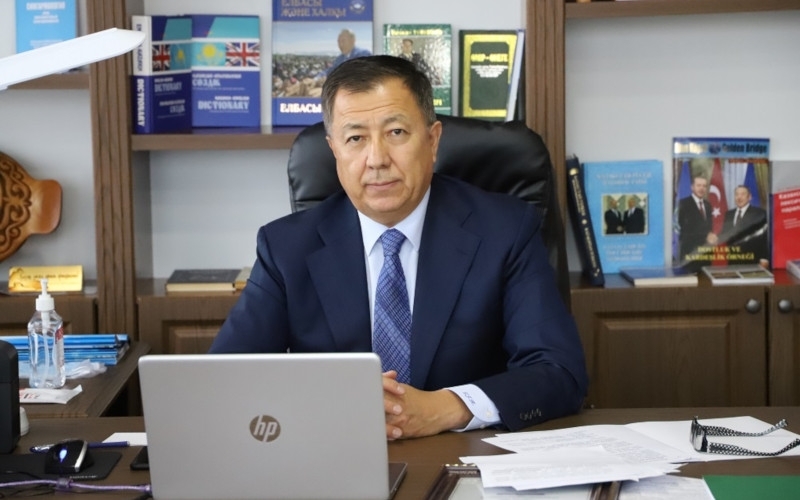
The Assembly of people of Kazakhstan took part in the online event of the Eurasian Peoples’ Assembly dedicated to the International Day of Peace.
Deputy Chairman of the Assembly of people of Kazakhstan Zhanseit Tuimebayev took part in the online event of the Eurasian Peoples’ Assembly dedicated to the International Day of Peace, which was held in Moscow, the press service of the APK reports.
Speaking with a welcoming speech, Zh. Tuimebayev noted:
“The theme of this day in 2020, “Shaping Peace Together”, is deeply symbolic and very relevant!
Today, almost all countries are going through difficult times due to the pandemic and the slowdown in economic growth.
It is no secret that all this contributes to the aggravation of social problems, and in some cases, to the growth of manifestations of xenophobia and ethnic and religious conflict.
Social conflicts are increasingly taking on an ethnic and religious form, resulting in an increase in the number of migrants and refugees.
Today, the once successful integration models of multi-ethnic societies are being seriously tested.
Manifestations of disunity of cultures and values, the growth of migrant phobia and racism, difficulties in the process of mutual adaptation have shown that previously successful ethnic models sometimes do not work in the XXI century.
On the contrary, the world, as before, is in the process of developing new formulas of unity that meet modern realities.
Therefore, the task of ensuring unity remains a key agenda for all multi-component States.”
Continuing his speech, the Deputy Chairman of the APK stressed that Kazakhstan is a multi-ethnic country where representatives of more than 100 ethnic groups live:
“More than 60 countries and territories of the world are the historical homeland for our ethnic groups.
Kazakhs live in dozens of countries around the world. Therefore, we are objectively interested in a comprehensive dialogue of peace and unity.
Since independence, ensuring peace and harmony has been a top priority of state policy.
Equality before the law, the principles of social harmony, and “unity in diversity” has become our priceless wealth and strategic resource.
We have made ethnic and cultural diversity an effective tool for the country's development.
The Assembly of people of Kazakhstan, established in 1995 on the initiative of the First President N. A. Nazarbayev, became a key institution of interethnic interaction.
By uniting all ethnic groups into a single people, it has achieved a high constitutional status as a nationwide institution with parliamentary representation.
25 years ago, it united about 40 ethno-cultural associations, and today there are more than a thousand such structures. They have more than forty Houses of Friendship at their disposal across the country, which have become civic centres of peace and harmony.
Our integration model is built primarily on the basis of common values, a common cultural space of the country, where languages, culture, and traditions of ethnic groups make up our common cultural wealth.
Each ethnic group is an integral part of the people of Kazakhstan.
No ethnic group has chosen a strategy of isolation.
The Assembly resolved fundamental issues related to the consolidation of ethnic groups in civil positions and preserved unity in diversity.
The United Nations and the Organization for security and co-operation in Europe have consistently given high marks to our model of inter-ethnic relations and integration.
Last year, the OSCE High Commissioner for National Minorities, Mr. Lamberto Zannier, also praised our policy on inter-ethnic and interfaith harmony.
Shaping Peace Together, we call on our partners to join forces to find an effective formula for strengthening peace and unity in multi-ethnic societies.”
Concluding his speech, Zhanseit Tuimebayev wished everyone interesting and fruitful work.
The event was also attended by public and scientific figures, representatives of international organizations UNESCO, the UN and diplomatic missions in the Russian Federation.


